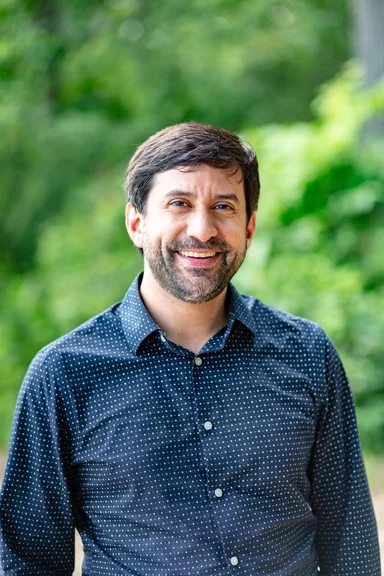David Bricklin-Small, PsyD
I am a client-centered psychologist who works with adults. I believe therapy should involve the whole person - including our internal, social, societal, spiritual, and physical selves. I invite clients to be collaborators in finding and exploring what will help them achieve growth. I provide a warm, inclusive, and nonjudgmental environment and believe a strong client-therapist relationship is essential for growth and change.
I integrate aspects of multiple therapeutic modalities, including behavioral approaches (CBT, behavioral medicine/health psychology), mindfulness-based interventions, humanism, existential, relational and developmental theory, motivational interviewing, and psychodynamic-informed care.
I help patients/clients address a range of concerns including but not limited to: depression, anxiety, trauma, difficulties in relationships, grief/loss, identifying life goals and identity development, navigating life transitions, and balancing work-life demands.
I received my training and doctorate through William James College (Newton, MA). I trained with Advocates Community Counseling, Rutgers University College Counseling, and Boston Behavioral Medicine. I completed a post-doctoral behavioral health fellowship at Harvard Vanguard Medical Associates/Atrius Health and I worked there as a staff psychologist. I have worked extensively in individual therapy, worked with adolescents and their caregivers, and have led mindfulness skills groups and anxiety skills groups.
I am an ally and welcome all gender identities and sexualities.
/ Insight and Action /
I believe therapy often involves a combination of Insight and Action. Insight helps us understand how we got to this moment; why we relate to ourselves, others, and the world in the ways we do; and how we can take this understanding and elicit meaning from it. Sometimes insight can be therapeutic alone.
Action is often needed. Action is what we might do to change or adjust our thoughts, our behaviors, and/or our emotions. This may include learning mindfulness techniques; challenging our own deeply held ways of seeing the world; learning how to cope with the myriad emotions we experience; finding ways to improve relationships through better communication strategies or the development of assertiveness skills; learning techniques to achieve better sleep; exploring one’s identity; learning how to more confidently own our choices and become more active agents in our lives; or simply learning how the brain and body relate to one another and using this knowledge to feel more whole.
“Be humble for you are made of Earth. Be noble for you are made of stars”
“You can dramatically extend life—not by multiplying the number of your years, but by expanding the fullness of your moments.”
“You have your own stories, the dramatic and more ordinary moments where what has gone wrong becomes an opening to more of yourself and part of your gift to the world. This is the beginning of wisdom.”
”
““May I see what I do. May I do it differently. May I make this a way of life.” ”


